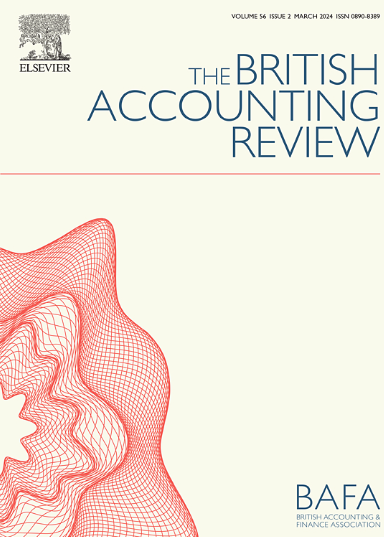The impact of asset specificity on corporate tax avoidance: Do financial constraints and product market power matter?
IF 9.4
3区 管理学
Q1 BUSINESS, FINANCE
引用次数: 0
Abstract
Our findings reveal that asset specificity significantly enhances corporate tax avoidance, with firms exhibiting lower cash effective tax rates. Firms with higher asset specificity also engage in more aggressive tax avoidance strategies, including tax dodging and long-term tax planning. Additionally, our analysis indicates that the positive impact of asset specificity on tax avoidance is less pronounced in firms with lower ESG performance but is more pronounced in those facing negative demand shocks or operating during periods of economic policy uncertainty. We also find that financial constraints and product market power mediate the relationship between asset specificity and tax avoidance, with financial constraints serving as the dominant economic channel. These findings offer new insights into the factors driving corporate tax avoidance and highlight the complex interplay between asset specificity, financial constraints, product market power, and tax planning strategies.
资产特殊性对企业避税的影响:财务限制和产品市场力量是否重要?
我们的研究结果表明,资产专用性显著提高了企业避税能力,企业表现出较低的现金实际税率。资产专用性较高的企业也会采取更激进的避税策略,包括避税和长期税收规划。此外,我们的分析表明,资产专用性对避税的积极影响在环境、社会和公司治理绩效较低的企业中并不明显,但在面临负面需求冲击或在经济政策不确定时期运营的企业中更为明显。我们还发现,财务约束和产品市场力量是资产专用性与避税之间关系的中介,其中财务约束是最主要的经济渠道。这些发现为企业避税的驱动因素提供了新的视角,并凸显了资产特殊性、财务约束、产品市场力量和税收筹划策略之间复杂的相互作用。
本文章由计算机程序翻译,如有差异,请以英文原文为准。
求助全文
约1分钟内获得全文
求助全文
来源期刊

British Accounting Review
BUSINESS, FINANCE-
CiteScore
8.60
自引率
3.90%
发文量
39
审稿时长
76 days
期刊介绍:
The British Accounting Review*is pleased to publish original scholarly papers across the whole spectrum of accounting and finance. The journal is eclectic and pluralistic and contributions are welcomed across a wide range of research methodologies (e.g. analytical, archival, experimental, survey and qualitative case methods) and topics (e.g. financial accounting, management accounting, finance and financial management, auditing, public sector accounting, social and environmental accounting; accounting education and accounting history), evidence from UK and non-UK sources are equally acceptable.
 求助内容:
求助内容: 应助结果提醒方式:
应助结果提醒方式:


